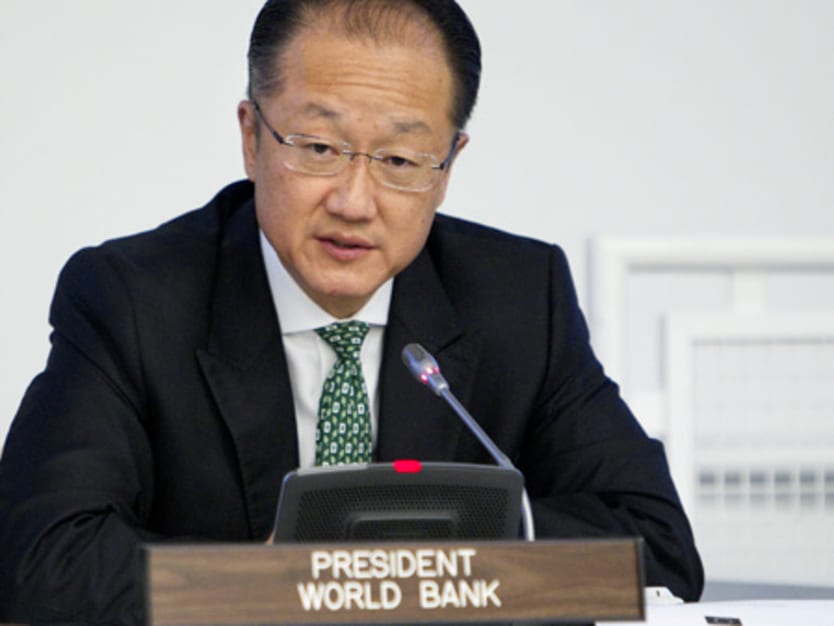
Plans for reform at the World Bank are taking shape, as the bank’s executive board is currently reviewing a draft strategy document that outlines President Jim Yong Kim’s vision for reorienting all of the bank’s resources toward the twin goals of eliminating extreme poverty by 2030 and fostering inclusive growth in middle-income countries.
The board will vote on the reorganization strategy during the World Bank annual meeting in early October.
Devex spoke with a high-level official within the bank who confirmed the draft strategy had been leaked. The 42-page document offers a new glimpse into an ongoing reform process that has polarized bank employees, some of whom feel Kim’s strategy for rolling out changes has lacked specifics when it comes to how it will be implemented.
Despite its undisclosed roadmap, the proposal to create an institution-wide strategy is seen as a big step toward aligning the bank’s goals with the changing global dynamics of borrowing, lending, income and growth – a step that has not been taken in three World Bank administrations.
Refined focus on eliminating poverty, inclusive growth
The last time the World Bank implemented an institution-wide strategy was during the presidency of James Wolfensohn, best remembered for his efforts to turn the institution into a “knowledge bank” by releasing the bank’s troves of research and data for public use.
Later the bank endured Paul Wolfowitz’s scandal-tarnished tenure, followed by Robert Zoellick’s leadership, the latter largely occupied with responding to the global recession that saw huge increases in World Bank lending – largely to middle-income countries.
Now lending has returned nearly to pre-recession levels, and the bank’s leaders are facing a development landscape characterized by much greater competition from other development banks, bilateral donors like China, and even private philanthropists and foundations.
Kim declared his intention to remake the institution he leads into a “solutions bank,” focused on programs specifically targeted to eliminating extreme poverty and fostering inclusive growth.
Many see the refined focus less as an example of ambitious goal-setting and more as an effort to cut costs and carve out a narrower niche in the face of an altered development finance reality. It’s a first step to align all five World Bank Group institutions – the International Bank for Reconstruction and Development, the International Finance Corp., the International Development Association, the Multilateral Investment Guarantee Agency, and the International Center for Settlement of Investment Disputes – with the dual goals Kim articulated last year.
No specifics
The bank reform process got under way in January this year when Kim commissioned international consulting firm McKinsey to conduct an organizational health survey. Just six months later, he announced the departure of two long-time vice presidents in a memo to staff that offered little explanation for the resignations.
The bank’s internal messaging system has witnessed a vigorous back-and-forth between supporters and skeptics of the proposals generated in staff working groups and posted inside the bank for internal comment and discussion.
Many observers continue to wonder what Kim’s first big initiative will be, and the leaked draft strategy, obtained by Reuters, appears to provide little clarity in terms of which specific programs will be changed, cut, or expanded.
Bank employees are still eager to learn how the proposed system of “global practices,” intended to reshape the way technical expertise informs regional programs and will change staffing requirements and responsibilities.
According to the Reuters report, the draft strategy hints at a greater role for new, innovative financing mechanisms – like fees, earmarks and trust-funds – which could offer controversial alternatives to traditional loan financing practices. It also suggests the World Bank will seek to partner with other development institutions like the United Nations, as well as with non-traditional actors through the formation of public-private partnerships.
Read more development aid news online, and subscribe to The Development Newswire to receive top international development headlines from the world’s leading donors, news sources and opinion leaders — emailed to you FREE every business day.








